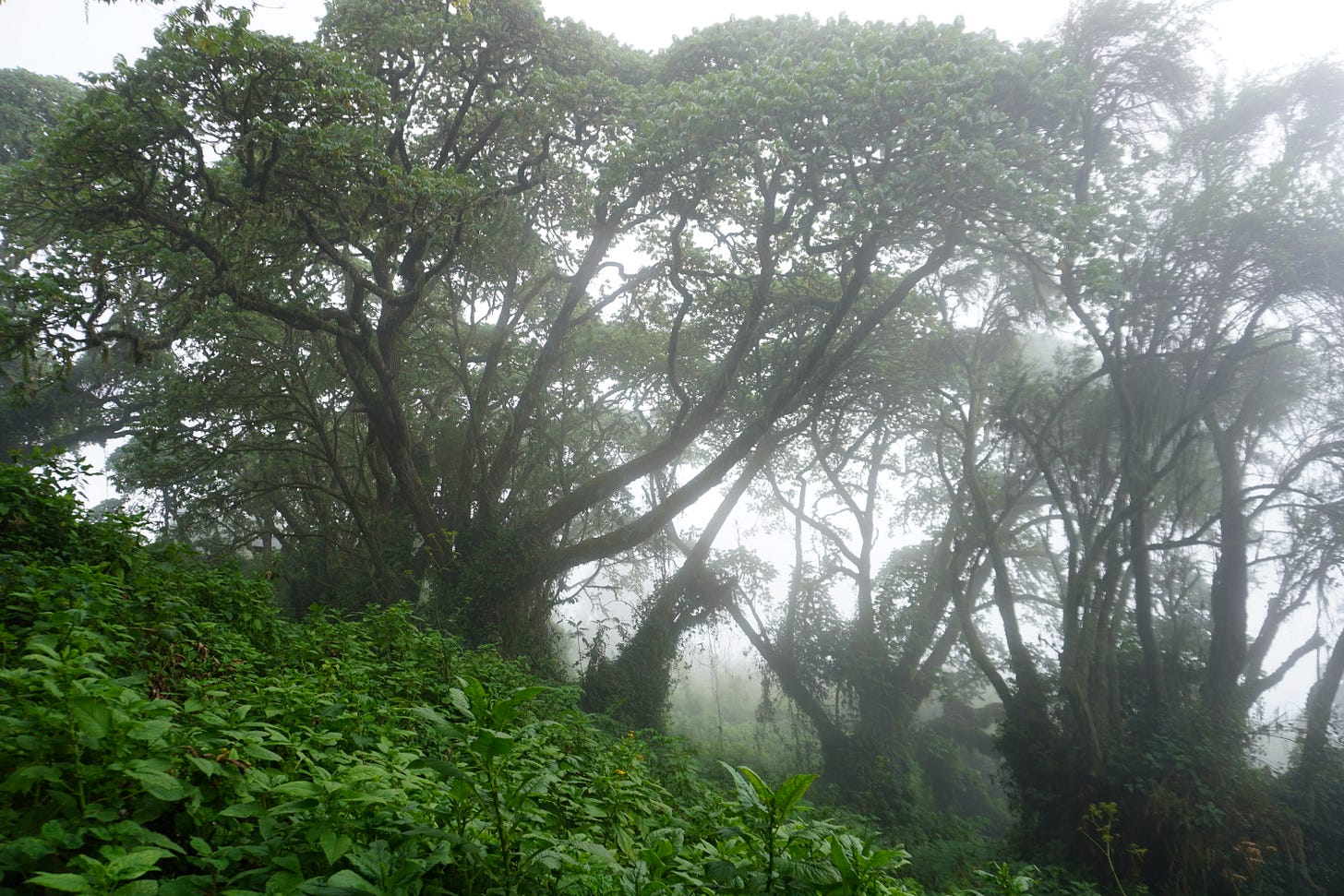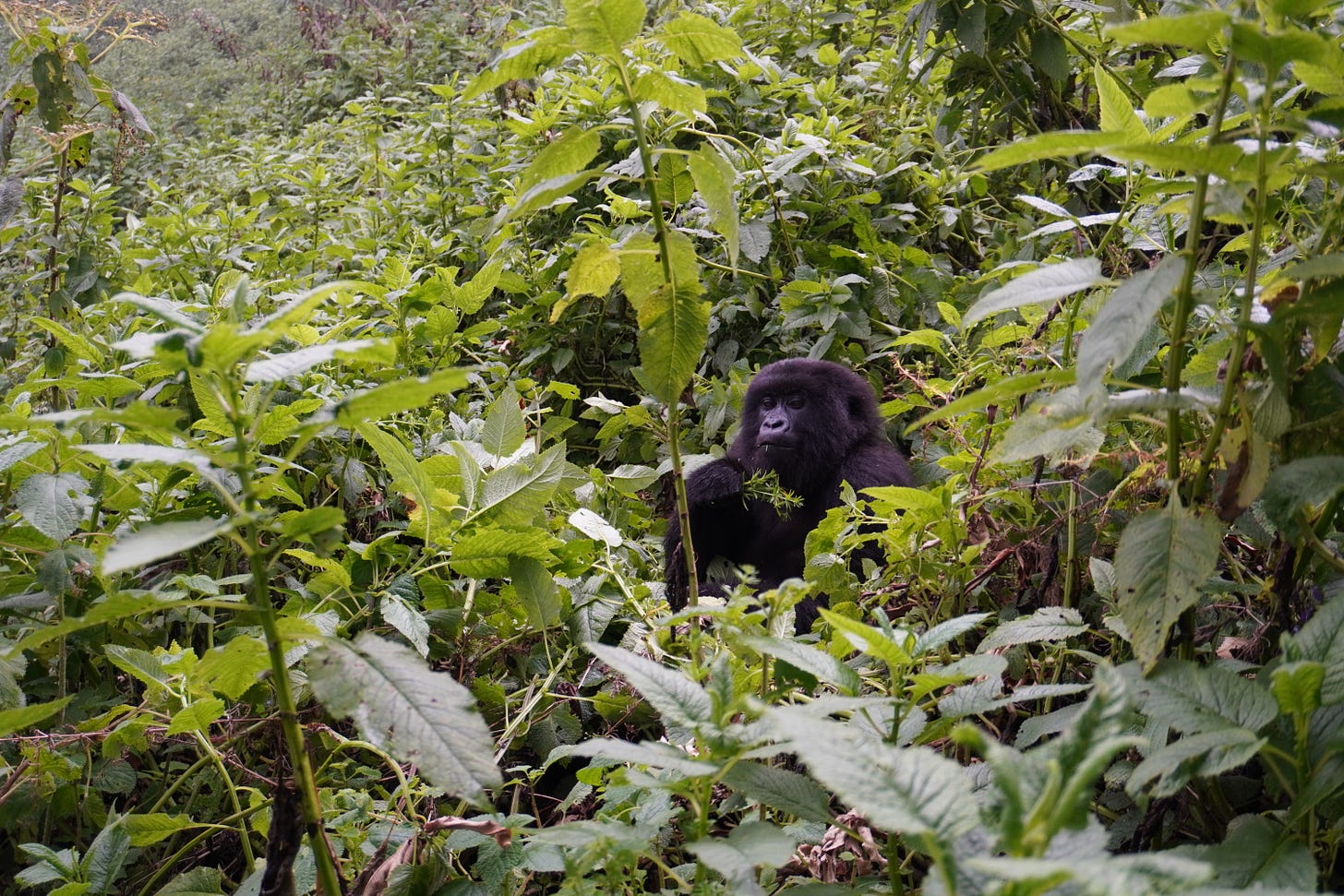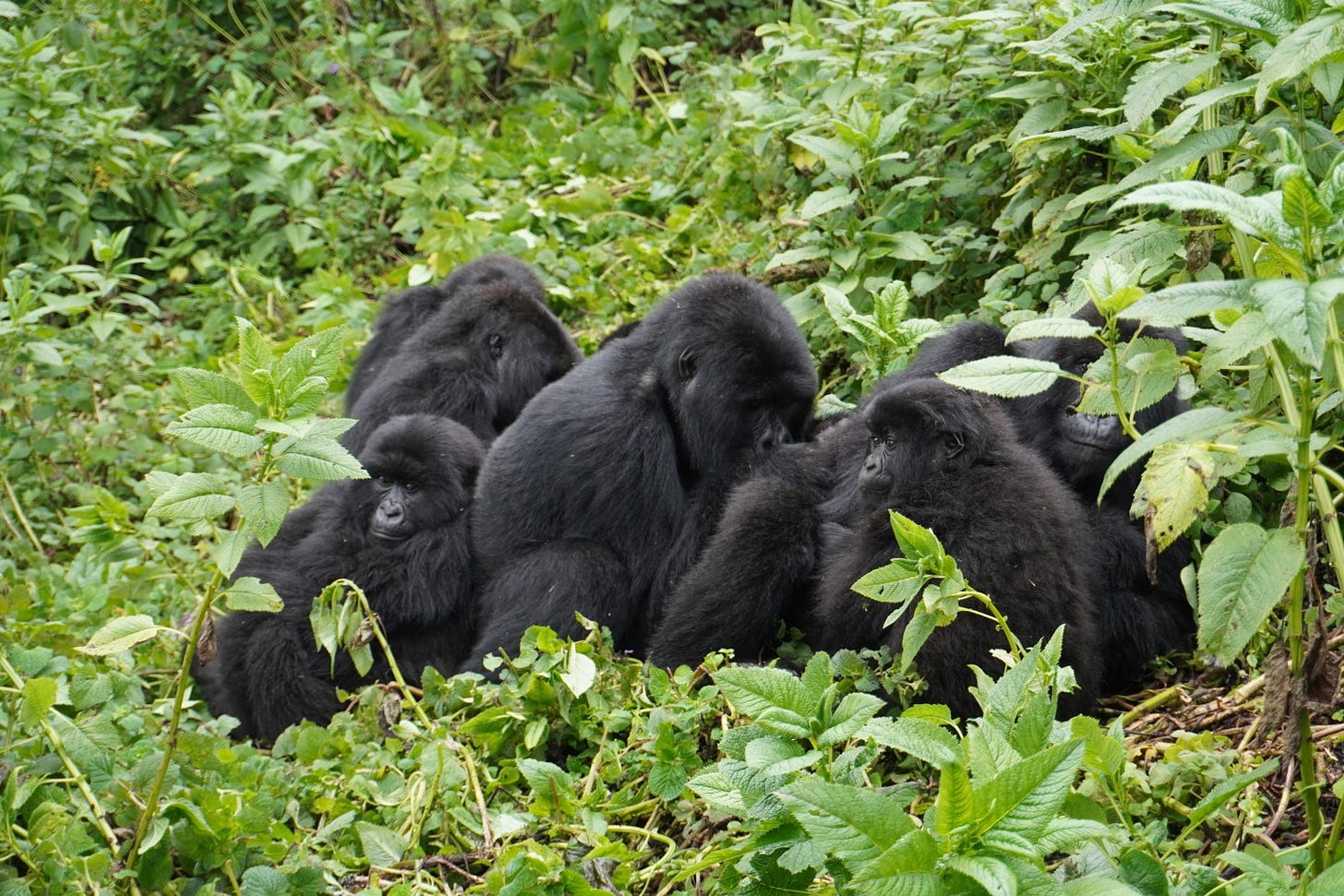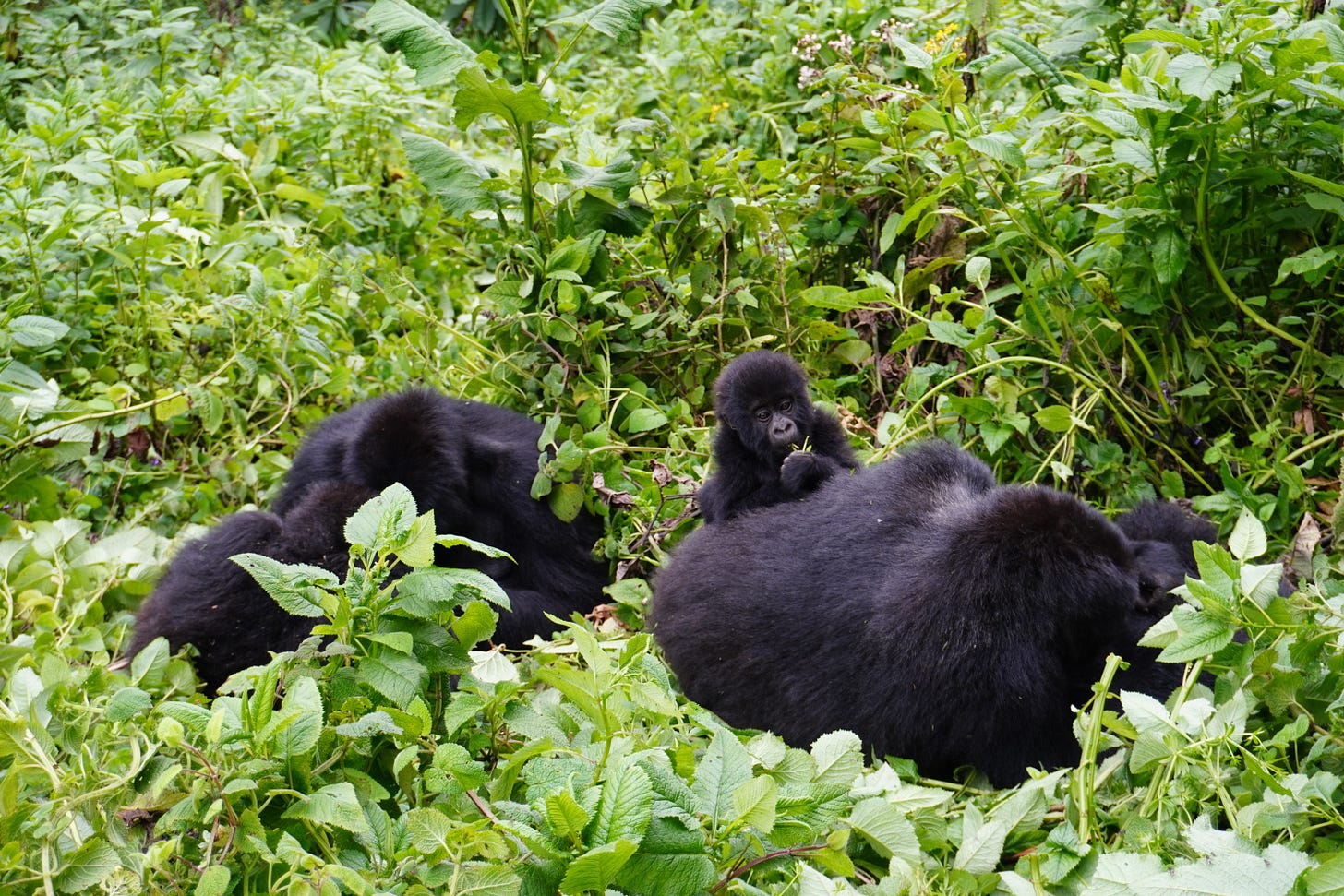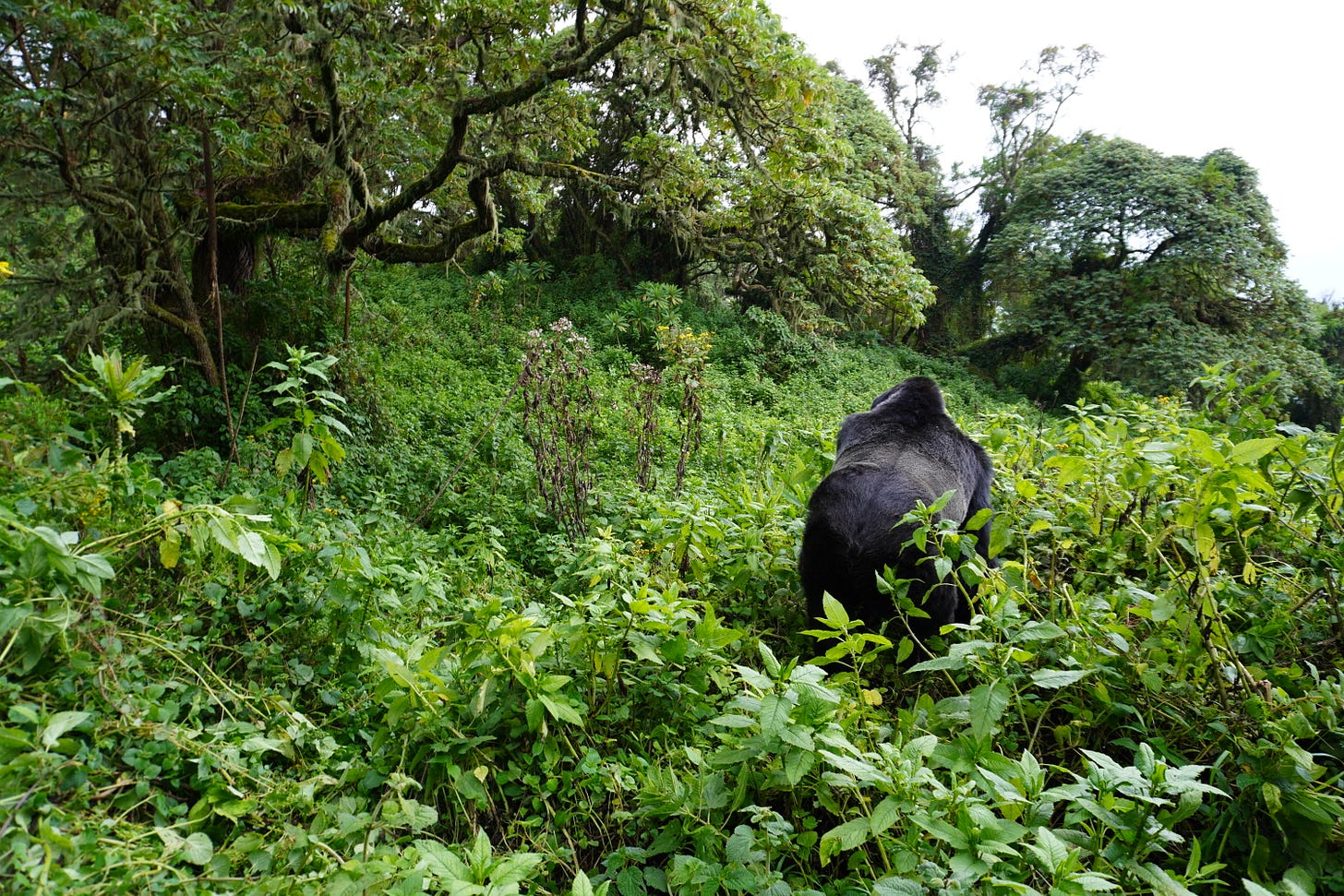It is so humid I am sweating. There is mud up to my inner thigh and my hands are damp inside the gloves I’ve been given against the nettles that block our trail. They are as tall as I am, part of vegetation that thick it has to be cleared with machetes. The green is infinite, even more vivid against the mist we are shrouded by.
I wonder what country I am in. We’ve been climbing for over two hours, with none of us daring to ask our tight-lipped guide are we there yet? The Virunga Mountains span the borders of Rwanda, the Democratic Republic of the Congo and Uganda. It’s another question I don’t ask because I realise it doesn’t matter. This is an ancient world with ancient trees that claw out of the earth.
I am behind four tourists wearing identical khakis and hats from a colonial era that serve absolutely no purpose. Our wooden walking sticks seemed silly at first but have fast become essential. Boots squelch and slip. One woman is gripping on her porter so tightly and complaining so loudly that he keeps looking back to give me side-eye. I count how many times she falls over and do not remind her she has paid 1500 USD for the privilege.
The ascent finally reaches a plateau and our guide Claude turns round and halts us with his palm. He still says nothing, he doesn’t have to. On cue, there is a shriek that cuts through the density and stops my breath. Nobody moves. I feel a prickle in my lower back that tells me I am frightened.
We’re told to drop our things and slip on facemasks to avoid passing over any disease. I wonder which poor gorilla was the one to test positive for COVID. There are a few more hundred metres to wade through, my legs smarting from the nettles, until we spot the first.
A lump of hairy black is stripping a stem of its leaves and pushing them into its mouth. I then see the others, dotted around in the long grass and mostly turned away from us humans who have all pulled out our devices. They are calm but wary. An enormous mass of silverback walks on his knuckles and drags his kin towards him.
This is the Igisha family, the biggest habituated gorilla family in Volcanoes National Park with 36 members that include six silverbacks. I am one of eight daily tourists who are fortunate to spend an hour with them. You can’t choose your family when you buy your gorilla trekking permit, but your fitness level does determine which group you get placed in. You can’t choose the people you trek with either.
“Can you make it, like stand up or something,” the woman who was previously complaining said. She lifted her arm to take a selfie. Another gorilla began to make short warning grunts with its throat.
“Please move backwards, you are too close.” Claude said with flat eyes. No wonder he is terse with us, I thought, he has to be more wary of the humans than the animals.
I distance myself a little and observe. To my left, there is a group lounging together, one picking and grooming the distinctive silver hair of another adult male. She nibbles on whatever she finds. In front, a baby rolling on its mother’s back, bug eyed and curious. Another child is being suckled by its mum and cradled in her arms.
If you ever read anything about mountain gorillas, you learn that they share 98% of our DNA. What makes them completely mesmerising is how expressive they are, how close they are to us. The way that they use their hands and fingers. The wise faces that seem to have absorbed the things that they’ve seen. I could not tear my eyes away from the baby that was so playful, so carefree, that it moved me to tears. I wanted to understand all of the family drama.
It was an extraordinary privilege but I also felt like an intruder. These wild animals were entirely habituated to our mooning about and clicking of cameras. In fact, the exorbitant fee to get up here contributes to their conservation, with mountain gorilla numbers on the rise. I was embarrassed by our human behaviour and how we can influence their fate, in comparison we seemed far less dignified.
It is one of the fastest and most memorable hours of my life. I later learn that Igisha is the head of the family and descendent of the historic Susa group that primatologist Dian Fossey studied. He’s the one we see at the very end, with the magnitude of a lord and an indifference that showed who this environment really belongs to.
On our way down, it starts to pour with rain.
“A man will never be great until he realises there are creatures more noble than he.” Dian Fossey, Gorillas in the Mist




